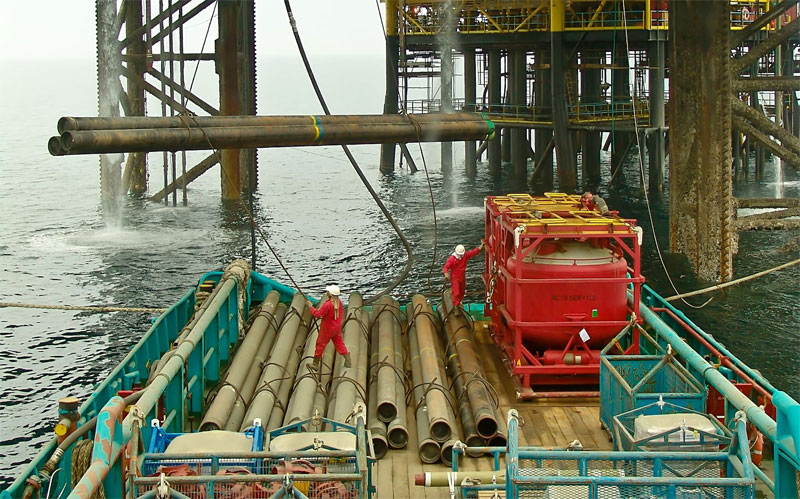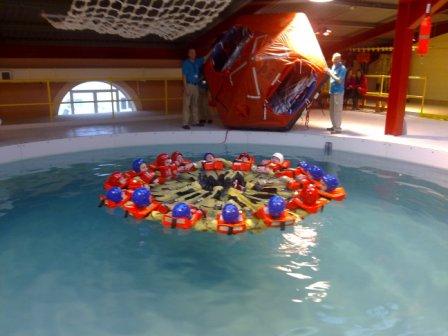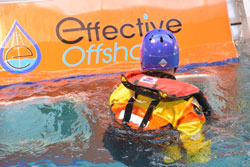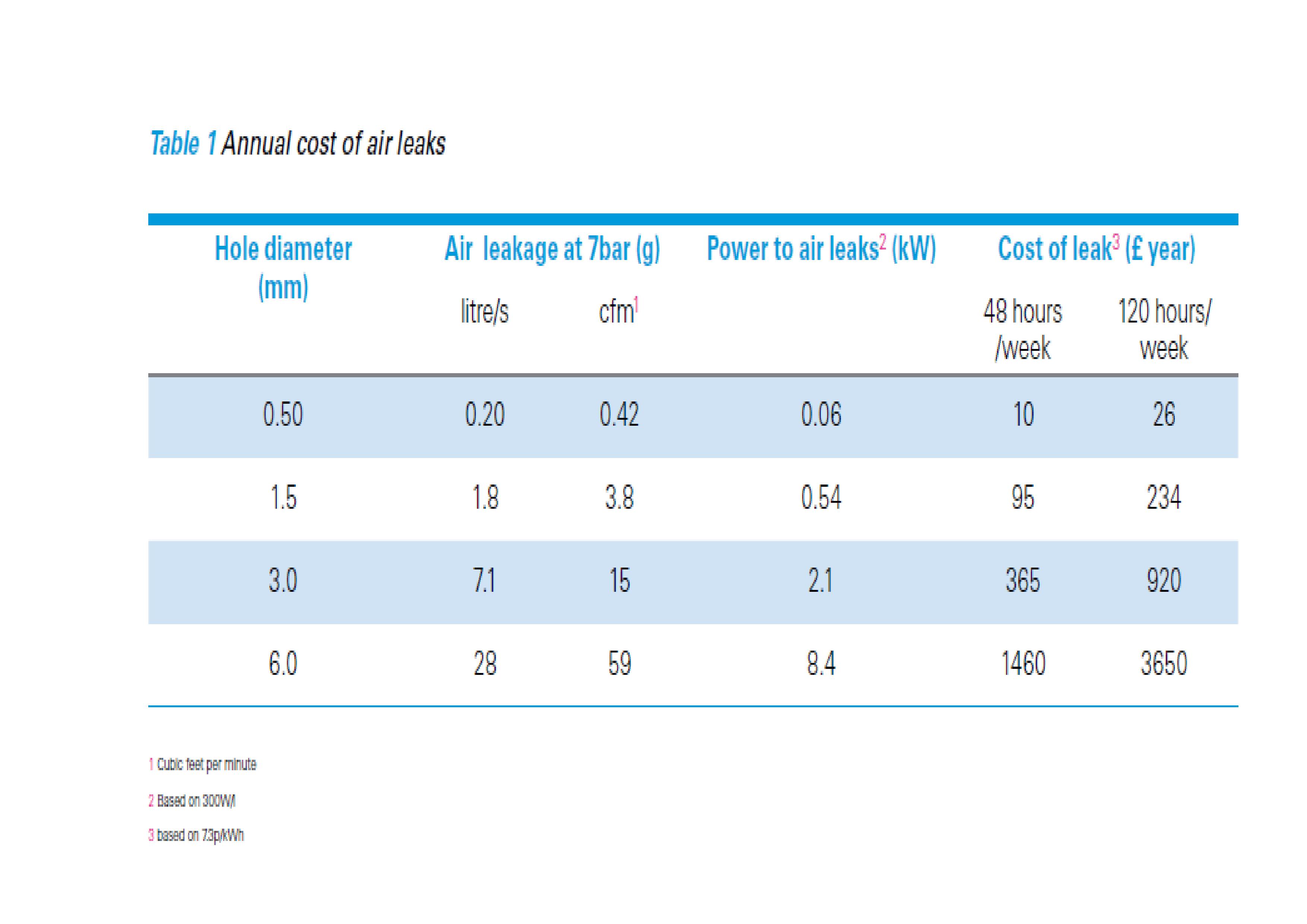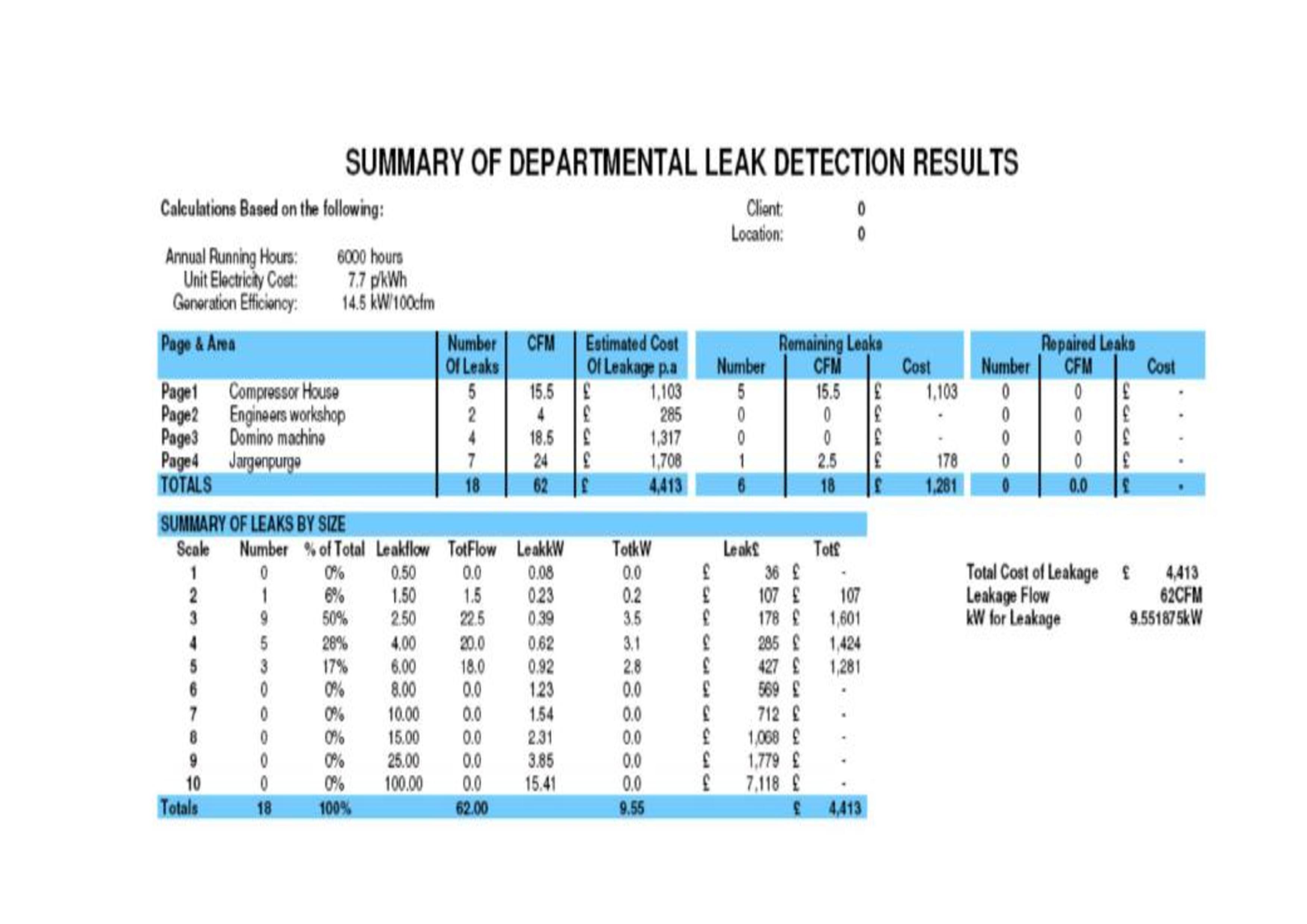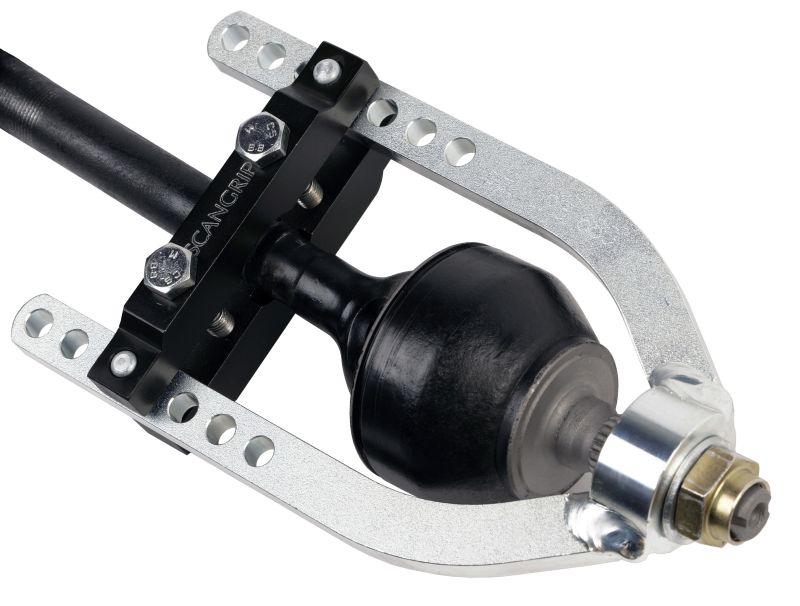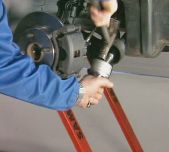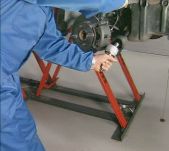Author Archives: admin
Rigger Training
Rigger Training Stage 1 (OPITO Approved)  Course Overview Rigging operations involve the use of lifting equipment to lift and transfer loads, often in restricted areas where a crane cannot be sited. Rigging and lifting operations are carried out by riggers and other disciplines including operations technicians, deck crew and drill crew. To ensure these operations can be carried out safely, it is vital that operatives of lifting equipment and accessories for lifting, are aware of the safe and correct use of equipment, and the probable consequences if safe and best practice is not followed. Course Structure The course is a mix of theory and practical with a bias towards practical exercises, and delegates are evaluated by means of an examination. Prerequisites None. Target Audience Personnel with a responsibility to carry out rigging and lifting operations whether routine or complex lifts. The course is also beneficial to personnel such as supervisors and HSE advisors, with a responsibility for proper planning and appropriate supervision of lifting operations, and persons with a responsibility for issue and control of lifting equipment and accessories. Course Content On completion of the course, delegates will be able to:
Course Overview Rigging operations involve the use of lifting equipment to lift and transfer loads, often in restricted areas where a crane cannot be sited. Rigging and lifting operations are carried out by riggers and other disciplines including operations technicians, deck crew and drill crew. To ensure these operations can be carried out safely, it is vital that operatives of lifting equipment and accessories for lifting, are aware of the safe and correct use of equipment, and the probable consequences if safe and best practice is not followed. Course Structure The course is a mix of theory and practical with a bias towards practical exercises, and delegates are evaluated by means of an examination. Prerequisites None. Target Audience Personnel with a responsibility to carry out rigging and lifting operations whether routine or complex lifts. The course is also beneficial to personnel such as supervisors and HSE advisors, with a responsibility for proper planning and appropriate supervision of lifting operations, and persons with a responsibility for issue and control of lifting equipment and accessories. Course Content On completion of the course, delegates will be able to:
- Carry out basic calculation of angles and tension
- Define lifting operation and equipment terminology
- Identify common unsafe practices and probable consequences
- Identify safe, and correct use, and pre-use examination of rigging and lifting equipment
- Plan routine lifting operations and understand requirement for non-routine/complex lift planning
- Understand care and storage requirements
- Understand relevant legislation applicable to lifting operations
- Understand the requirement of lifting operation risk assessment
- Understand basic functions and safe working practices of offshore pedestal cranes and overhead travelling cranes
Certification An OPITO-approved certificate will be issued on successful completion of the course. Revalidation To be determined by dutyholder. Items to bring Photographic ID. Health All delegates will be asked to complete a medical questionnaire prior to course commencement. Dates Courses run fortnightly. Please refer to the training calendar on the home page. Cost €795
Fill in an Application Form
Banksman
Banksman and Slinging Operations Stage 1 (OPITO Approved)
Course Overview
The course provides information on the safe and correct use of lifting equipment and accessories, and best practice to promote a safer environment for persons involved. The course is to OPITO-approved standards.
Course Structure
The course is a mix of theory and practical with a bias towards practical exercises, and delegates are evaluated by means of an examination.
Prerequisites
None.
Target Audience
Personnel wishing to be involved with the slinging of loads and signalling of cranes. It is also beneficial to offshore line management and other personnel with a responsibility for safe crane lifting operations.
Course Content
The syllabus is designed to ensure that on completion of training the delegate will be able to:
- Identify common unsafe practices and probable consequences
- Understand lift planning
- Relate to crane lifting related incidents
- Understand relevant legislation applicable to lifting operations
- Understand basic functions of a crane
- Understand crane hand and radio signals
- Understand lifting operation risk assessment
- Understand responsibilities of a banksman/slinger
- Understand safe and correct methods of slinging loads, correct use and care of equipment (includes pre-use examination of equipment and identification of defects)
Certification
An OPITO-approved certificate will be issued on successful completion of the course.
Revalidation
To be determined by dutyholder.
Items to bring
Warm / wet weather clothing. Photographic ID.
Health
All delegates will be asked to complete a medical questionnaire prior to course commencement.
Dates
Courses run monthly. Please refer to the training calendar on the home page.
Cost
€725
Fill in an Application Form
HUET
HUET: Including Emergency Breathing Systems (EBS) 1/2 Day
Course Overview
This course is designed to provide personnel who travel by helicopter with an understanding of helicopter escape procedures and, in particular, action to be taken to evacuate or escape from a ditched/capsized helicopter.
Course Structure
Delegates are introduced to HUET training in a theoretical manner which is supplemented by demonstration and delegate participation.
Prerequisites
Delegates must be at least 16 years of age.
Target Audience
Personnel who travel by helicopter over water. It is also suitable for personnel who have undertaken survival training which did not include helicopter underwater escape training.
Course Content
The syllabus focuses on:
- Action prior to ditching
- Actions following simulated ditching including submersion and inversion of helicopter
- Deployment and operation of Emergency Breathing Systems (EBS)
- Helicopter emergency procedures
Certification
An OPITO-approved Helicopter Underwater Escape Training and EBS certificate will be issued on successful completion of the course.
Revalidation
Every four years.
Items to bring
All delegates must bring swimwear and a towel. Photographic ID.
Health
All delegates will be asked to complete a medical questionnaire prior to course commencement.
Fill in an Application Form
Dates
Available any Monday, Wednesday or Friday. Please call to book.
Cost
€395
FOET
(FOET) Further Offshore Emergency Training (1 Day) OPITO Approved
Course Overview
This course is designed to meet further emergency training requirements for oil & gas industry personnel. Delegates will be required to demonstrate their level of knowledge and understanding of the training course content.
Course Structure
Delegates will be given further training to enhance and complement their existing knowledge of the hazards encountered when working on offshore installations and the course forms part of their ongoing emergency
training programme.
Prerequisites
Delegates must have an in-date BOSIET/FOET certificate or equivalent.
Target Audience
Delegates who have attended a Basic Offshore Safety Induction and Emergency Training (BOSIET) course
and wish to maintain their current certification for working in the offshore Oil and Gas Industry.
Course Content
The syllabus focuses on:
•Helicopter safety and escape – actions to be taken in the event of a helicopter emergency, including operation and use of emergency breathing systems
•Fire fighting and self-rescue – operation of hand held portable fire extinguishers and use of respiratory protective equipment
•Emergency first aid
Certification
An OPITO-approved Further Offshore Emergency Training certificate will be issued on successful completion of the course.
Revalidation
Every four years.
Items to bring
All delegates must bring swimwear, a towel and a change of casual clothing to wear underneath the fire
training equipment. Photographic ID.
Health
All delegates will be asked to complete a medical questionnaire prior to course commencement.
Dates
Courses run weekly every Monday, Wednesday and Friday – please call for availability and to book
Cost
€495
Fill in an Application Form
BOSIET
(BOSIET) Basic Offshore Safety Induction & Emergency Training (3 Days) OPITO Approved
Course Overview
This course is designed to provide delegates with a basic knowledge of safety and emergency response procedures for working in the offshore Oil and Gas Industry.
Course Structure
Delegates will gain a basic level of understanding and awareness of the hazards encountered when working on offshore installations, and of the safety regime and safety management systems in place to control and mitigate those hazards. The course is a mix of theoretical and practical sessions, during which delegates will be required to demonstrate their level of knowledge and understanding of the training programme content.
Prerequisites
Delegates must be at least 16 years of age.
Target Audience
All personnel employed on an offshore installation or seeking employment in the offshore Oil and Gas Industry.
Course Content
The syllabus focuses on:
•Basic safety induction
•Emergency Breathing Systems (EBS)
•Fire fighting and self rescue
•Helicopter safety and escape
•Sea survival
•Survival first aid
Certification
An OPITO-approved Basic Offshore Safety Induction and Emergency Training certificate will be issued on successful completion of the course.
Revalidation
Every four years.
Items to bring
All delegates must bring swimwear, a towel and a change of casual clothing to wear underneath the fire training equipment. Photographic ID.
Health
All delegates will be asked to complete a medical questionnaire prior to course commencement.
Dates
Courses run weekly on a Wednesday through Friday. Please refer to the training calendar on the home page.
Cost €850.00
Fill in an Application Form
MIST
M.I.S.T – Minimum Industry Safey Training (2 Day) OPITO Approved
Course Overview
This introductory safety training programme is designed to introduce the fundamental safety elements of the offshore oil & gas industry, giving an appreciation of the potential hazards and controls that might be encountered by personnel working offshore.
Course Structure
The course consists of lecture and discussion and includes case studies and some practical exercises.
Each module also includes a written assessment.
Prerequisites
None
Target Audience
The course is intended for new entrants to the offshore oil & gas industry.
Course Content
The syllabus consists of nine modules:
•Module 1 Introduction to the Hazardous Offshore Environment
•Module 2 Working Safely including Safety Observation Systems
•Module 3 Understanding the Risk Assessment Process
•Module 4 Tasks that require a Permit to Work
•Module 5 Personal Responsibility in Maintaining Asset Integrity
•Module 6 Using Manual Handling Techniques Every Day
•Module 7 Controlling the Use of Hazardous Substances Offshore
•Module 8 Knowledge and Practices of Working at Height
•Module 9 Being Aware of Mechanical Lifting Activities
Certification
An OPITO-approved certificate will be issued on successful completion of the course.
Revalidation
Every four years by on-line assessment which can also be facilitated at Effective Offshore.
Items to bring
Photographic ID.
Health
All delegates will be asked to complete a medical questionnaire prior to course commencement.
Dates
Courses run weekly on a Monday and Tuesday. Please refer to the training calendar on the home page.
Cost €450.00
Fill in an Application Form
Air Leak Survey
Air Leakage
Leakage is the single largest waste of energy associated with compressed air systems with rates exceeding 50% of site consumption being common.
The table below illustrates losses experienced within a typical system.
Ultrasonic Surveys
Detecting leaks is a straightforward matter and can be achieved by using the old fashioned soapy water technique. This works but is slow, messy and cannot be performed from a distance.
Why not let Logis-Tech conduct an ultrasonic survey or invest in an ultrasonic leak detector?
Air Leak Surveys
Good ultrasonic detectors can highlight leaks from over 50 feet away even in noisy plant areas enabling you to complete a survey in very little time and save a fortune in compressed air costs.
CVJ Puller
This tool is used for removing the cv joint on front wheel drive cars
See Video here for easy, fast and safe removal of the CV Joint
-
Fits most cars
-
Patented product
-
Registered as special tool at SEAT/VW (ref T20181)
-
Avoid detaching the entire drive axle from the vehicle
-
Saves time and costs considerably
-
Avoid striking the joint with hammer and drift, with sliding hammer or with air hammer
Manual
See the Operating Manual here
Weight
2 kg
Content of package 1 SCANGRIP CVJ Puller
Accessories
Upper and lower jaws, guide pin and puller fork for the CVJ Puller are available as supplementary accessories
Oil and Gas Well Technology (Level 3)
Oil and Gas Well Technology (City and Guilds – Level 3 Certificate)
Level 3 City and Guilds Certificate in Oil and Gas Well Technology The course looks at the underpinning knowledge relevant to the electrical engineering maintenance sector; as well as the theory, operation and practical application of the electrical equipment and systems used in extraction.
The course/series consists of 5 modules: –
• Electrical Safety
• Electrical Hazard area equipment
• Electrical Motors
• Generation, Distribution and Control of Electrical Supplies
• Electrical Protection Systems
These stand-alone modules will enable an individual to select those learning materials that suit his or her own particular requirements. Modules can be studied at the candidates own pace and can be studied in any order but the order is as numbered. The study time needed will vary from one module to another, and from one individual to another. It is likely to be in the range 40 – 60 hours for each module.
Each module will consist of four Workbooks, and a “Guide to Open Learning”.
No commitment to enrolling for the complete Oil and Gas Well Technology Series is required at any time although each candidate must register for each module. Modules are non-transferrable and can only be assigned to one candidate.
Each module (detailed above) may be assessed by examination and an individual certificate endorsed by City and Guilds of London Institute awarded to successful candidates.
Each exam which is passed successfully will contribute to one Certificate of Unit Credit towards The Certificate in Oil and Gas Well Technology. The Certificate will be awarded after all 3 Certificates of Unit Credit have been accumulated.
Certificate in Petroleum Technology (Level 3)
Petroleum Processing Technology (City and Guilds – Level 3 Certificate)
The course will help anyone with an interest in the oil industry achieve a broad understanding of the operational techniques of petroleum processing and the function and construction of the plant and equipment used in the processing of petroleum reservoir fluids.
The course/series consists of 10 modules:
• Oil and Gas Separation
• Gas Dehydration
• Petroleum Gas Compression
• Natural Gas Liquids Recovery
• Oil Pumping and Metering
• Injection Water Treatment
• Produced Water Treatment
• Gas Flow Measurement
• Process Flow & P&ID’s
• Oil Treatment (Dehydration)
These stand-alone modules will enable an individual to select those learning materials that suit his or her own particular requirements. Modules can be studied at the candidates own pace and can be studied in any order, but the order is as numbered. The study time needed will vary from one module to another, and from one individual to another. It is likely to be in the range 20 – 40 hours for each module.
Each module will consist of one or more Workbooks, and a “Guide to Open Learning”.
No commitment to enrolling for the complete Petroleum Processing Technology Series is required at any time although each candidate must register for each module. Modules are non-transferrable and can only be assigned to one candidate.
Each module (detailed above) may be assessed by examination and an individual certificate endorsed by City and Guilds awarded to successful candidates.
Each exam which is passed successfully will contribute to one Certificate of Unit Credit towards The Certificate in Petroleum Processing Technology. The Certificate will be awarded after all 10 Certificates of Unit Credit have been accumulated
